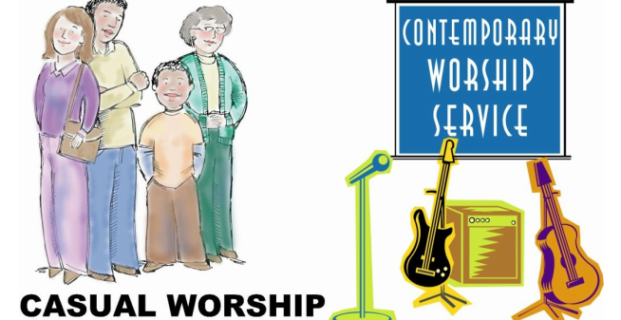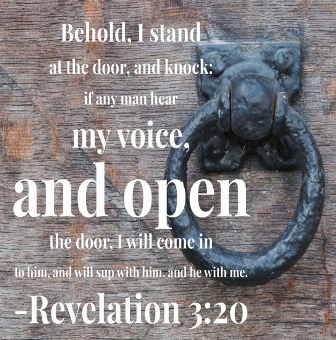As you travel through the U.S., you will notice signs in front of churches today that state something like, “Casual Worship“, or “Contemporary Worship“. Reflecting on these signs, I often wonder what it is that these congregations are really trying to convey to the passerby. In other words, what’s going on inside?
For “Casual Worship,” do they mean “come as you are” – or restated, they don’t care what you are wearing, regardless if it is cutoffs or short shorts, tank tops or halter tops, beach wear, bedtime clothing, clothes that are tattered and torn, or clothes that are so revealing that grown men and women would blush? Or, does it mean that they “casually worship” – in other words, they sing some songs (some may even be religious), quote a few Scriptures, talk a little about life (or whatever the current events are), and then they have a sense that they have “casually worshipped?” For “Contemporary Worship,” do they mean that you’re suppose to bring your cell phones, ipads, tablets, laptops, mp3 players and other electronic devices to the worship service? Does it mean that they have a great band that “plays the tunes,” gets your toes tapping (and on a good day, there’s dancing in the aisles)? Or, does it mean that they have a great drama team that can really entertain you, make you laugh/cry, a stage show that will really get you emotionally stirred up? Consider how many churches today have a Java bar in their church – including a big screen TV, so that one could sit in the Java bar, enjoy the “singing / preaching” while sipping on their favorite café latte.
Notice what the Lord stated to Israel concerning their “worship” and service unto Him.
Jeremiah 3:20-22 states,
“Surely as a wife treacherously departeth from her husband, so have ye dealt treacherously with me, O house of Israel, saith the LORD. A voice was heard upon the high places, weeping and supplications of the children of Israel: for they have perverted their way, and they have forgotten the LORD their God. Return, ye backsliding children, and I will heal your backslidings. Behold, we come unto thee; for thou art the LORD our God.”
Jeremiah 7:2-3a states,
“Stand in the gate of the LORD’S house, and proclaim there this word, and say, Hear the word of the LORD, all ye of Judah, that enter in at these gates to worship the LORD. Thus saith the LORD of hosts, the God of Israel, Amend your ways and your doings.”
We continually hear those today who proclaim that the “Worship” service must evolve to be in tune with and to serve “today’s generation”. This is an interesting supposition for one to take because it completely turns upside down the focus as to whom the “Worship” service is for. The Scriptures speak expressly that when we enter the Lord’s house we are to enter with a focus of worshipping our Lord and Savior Jesus Christ.
John 4:24 states,
“God is a Spirit: and they that worship him must worship him in spirit and in truth.”
Psalms 95:6 states,
“O come, let us worship and bow down: let us kneel before the LORD our maker.”
From generation to generation God’s Word has been preached, the Holy Spirit has convicted lost souls to be saved and lives to be changed, and God’s Word did not need to “evolve” or to “be tuned up”. Placing an adjective such as “Casual” or “Contemporary” in front of the word “Worship” demeans the true intent and focus of our “Worship” – for it implies that we are serving the flesh instead of the Lord.
Colossians 2:23 sums up this type of “Worship”,
“Which things have indeed a shew of wisdom in will worship, and humility, and neglecting of the body; not in any honour to the satisfying of the flesh.”
Now, before you argue that “that’s not happening at our church,” ask yourself, “Has my [our] worship become so casual and contemporary that the Lord wouldn’t even recognize it as [worship]?”, “Have I [we] forgotten about what true reverence and worship of our Lord is supposed to be inside (as well as outside) the Lord’s house?” And finally, if a passerby stopped in during the [Worship] service, would he find true “Worship” of the Lord? Or, would he find a “casual” and “contemporary” “Worship” service?



